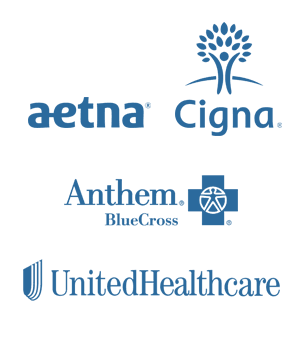

About Codeine Detox
Many individuals suffering from an opiate addiction may be reluctant to seek help. They may feel they don’t need help because:
They haven’t been using the drug for a long period of time
Their addiction isn’t severe
They are using prescription medications and feel they are immune to addiction
Unfortunately, such beliefs are myths associated with addiction. Such myths can be dangerous because they prevent one from seeking help with their opiate addiction.
Addiction Length
Need More Information About Detox?
Opiate Addiction Severity
You may be surprised to know that you do not need to be a heavy user of opiates to seek opiate treatment. The one thing you can count on when it comes to opiate addiction is that it will get worse with time. And because opiates are so addictive, it doesn’t take long to become addicted. Your life can spiral out of control if you fail to seek help with an opiate addiction. As your addiction grows, you will experience many negative effects, such as:
- Financial troubles
- Damaged relationships
- Health problems
Opiate Addiction Type
- Irritability and anxiousness
- Difficulty sleeping
- Runny nose
- Watery eyes
- Increased heart rate
- Sweating
- Muscle aches
- Yawning
- Decreased appetite
- Chills
- Nausea and vomiting
- Diarrhea
- Stomach cramps
- Dilated pupils
Codeine Withdrawal and Addiction
Codeine Withdrawal Programs
Codeine Withdrawal Symptoms
When an individual has been using codeine for a long period of time, the withdrawal symptoms can be quite severe. Depending on the length of codeine abuse, the long-term effects on the body and withdrawal process will vary based on every individual’s genetic makeup. While it is true that codeine withdrawal symptoms can occur in people who have only been using the drug for a short period of time, most codeine addicts have been using the drug for longer periods of time. Someone who finds themselves physically dependent on pain medications like codeine, the codeine
Someone who finds themselves physically dependent on pain medications like codeine, the codeine withdrawal and detox process shouldn’t be attempted outside the supervision of medical professionals. Some of the more common codeine withdrawal effects individuals in Huntington Beach rehab centers are the following:
- Intense drug cravings
- Anxiety and irritability
- Sweating
- Nausea and vomiting
- Chills and goosebumps
- Muscle spasms
- Stomach cramps
- Runny nose
- Hallucinations
- Homicidal preoccupations
- Suicidal thoughts
- Racing, scattered thoughts
- Psychosis
Three Phases of Codeine Withdrawal
Hours after the last dose, Demerol withdrawal symptoms will begin to appear. These withdrawal symptoms are not the same for every individual going through detox. It is important to note that Demerol withdrawal is usually not life-threatening, compared to other opiate drugs such as heroin and fentanyl. Relapse while experiencing the early symptoms of Demerol withdrawal is quite common, and individuals needing help to stop using should seek professional inpatient drug rehab in Orange County. Below are some of the more common Demerol withdrawal symptoms clients might experience:
Phase 1
This is considered the most intense phase of codeine withdrawal. The physical symptoms of withdrawal will commonly begin 6 hours after taking their last dose. These symptoms can increase in severity over the next few days and can last for almost a week.
- Insomnia
- Depression
- Nausea and Vomiting
- Diarrhea
- Stomach cramping
Phase 2
This next phase can last as long as 14 days. This is the detoxification phase as the body purges the remaining drugs and accumulated toxins. Without this phase, the body would not be prepared to start restoring normal functions or continue to heal from the withdrawal process.
- Body cramps
- Chills and Goosebumps
- Dilated pupils
- Restlessness
Phase 3
This last phase is the longest lasting of the 3 phases. The symptoms clients experience during this part of drug detoxification are lesser in severity but can last up to 2 months. Some of the more common side effects during this phase are:
- Anxiety
- Restlessness
- Sleep Disturbances

